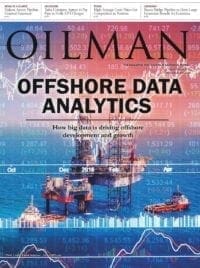Sentiment has been increasing in the oilfield in recent months, and subsequently, mergers and acquisitions (M&A) have been on the rebound. The current optimism is being manifested by the sustained oil prices, uptick in rig count, and increased oilfield service work. As a result, investors are beginning to re-enter the oilfield intending to place new bets or double down on previous positions.
This time around, we are seeing a different flavor of capital injection, coming in the form of more flexible and creative transaction types from a range of buyers and investors. These deals range from minority recapitalizations and growth equity concepts all the way to private debt. The spectrum of buyers and investors is also diverse, ranging from wealthy investors, family offices, as well as oilfield-focused private equity and debt firms. Each deal and transaction type has its own nuances and pros and cons.
The number of oilfield-related transactions over the last few months has significantly increased, driven by the growing sentiment. Founders’ most recent oilfield deal came in the form of a non-traditional debt recapitalization. We were able to work with the management team at Circle 8 Crane Services (Circle 8) to identify capital market opportunities that could support their needs.
Circle 8 is a leading provider of operated and maintained crane lifting services to the oil and gas, commercial, and industrial markets in the U.S., with locations throughout Texas and Louisiana. They wanted a more flexible lending partner that could support their desire to expand the business. They found this partner in Trive Capital, a Dallas-based firm. This flexibility was key to this transaction, as Circle 8 management sees a real opportunity to take advantage of the next upswing in the oilfield.
A non-traditional debt recapitalization is representative of the creative and flexible capital that is becoming more available to companies in a market where traditional banks have not yet returned to actively lend in the oilfield. Many middle market oilfield service companies continue to negotiate with their banks, yet these lenders simply do not have the flexibility or risk tolerance to allow for a debt restructure. Non-bank private debt is one of the alternative sources of debt capital for these companies.
Investors are getting imaginative as they view opportunities that come on the tail end of an over two-year decline in the industry. With many oilfield service companies in a challenged state, most have a thesis to partner with quality groups who weathered the storm and are positioned to take market share while riding the industry wave back up. This strategy, executed successfully, will help to increase revenues and lift margins. It has been an impressive feat for these companies to have survived the downturn, and a flexible capital partner could be the solution needed to take advantage of the timely opportunity of hitting this cycle in the upturn.
In conclusion, we expect these transactions to continue to take place in the coming year. Look for capital to strategically and creatively enter the market to take advantage of the market share opportunity for the companies who have outlived the downturn.
Duane Donner is founder and Managing Partner of Founders Investment Banking. Duane, a native of Lafayette, LA, began his career as a project engineer for Global Industries, an industry-leading oil and gas offshore construction company. He also served in the Army Reserves and ended his military service as a 1st Lt. Infantry officer serving his last year on active duty during Desert Storm. Upon graduation from the University of Alabama’s Manderson Graduate School of Business with an M.B.A. he successfully built and sold a company of his own. Duane started Founders Investment Banking in 2003, the company offers M&A advisory and merchant banking services with a specialized practice in Oil & Gas Services. Duane is a registered representative M&A Securities Group, Inc., an unaffiliated broker dealer and member FINRA/SIPC.








